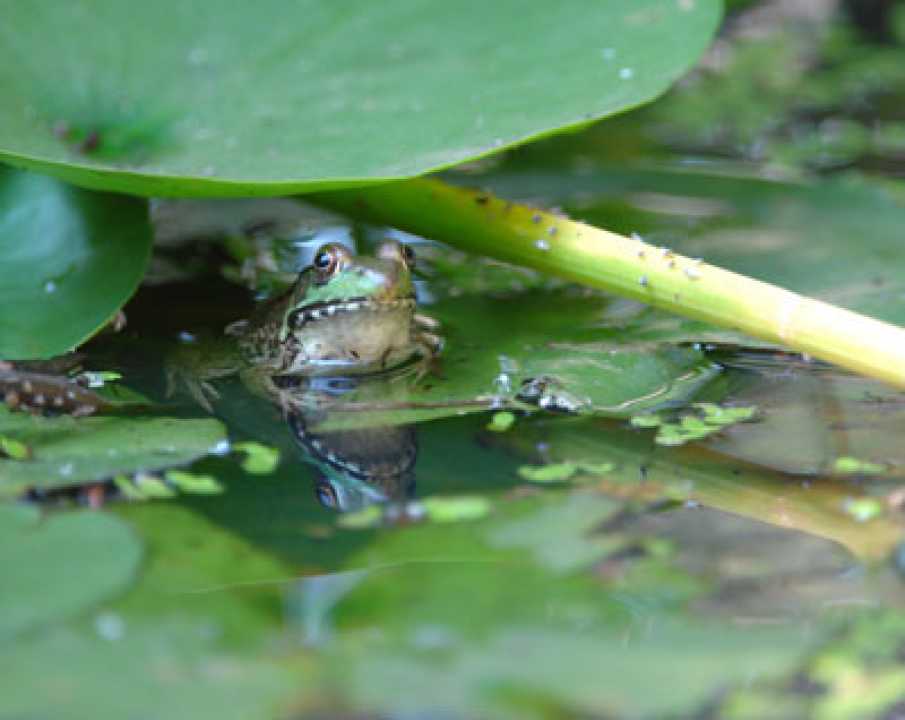News
Reflection on Nature: The Importance of Local Frog Habitats

In the midst of the hectic news cycle, Dave Anderson, a naturalist and Senior Director of Education at the Society for the Protection of New Hampshire Forests, emphasizes the value of local nature connections. He shares his personal experience with a frog pond he created, describing it as a sacred space that provides solace and reflection.
The pond, while modest in scale, serves as a thriving habitat for frogs and other amphibians from late March until October each year. Anderson notes the enjoyment many find in observing frogs in their natural behaviors, including breeding and sunbathing.
During the spring, the pond transforms as ice melts, becoming a lively site for wood frogs and spotted salamanders. Anderson prepares the pond by placing sticks and branches, which attract females laying eggs. The chorus of male wood frogs and the distinctive sounds of peepers fill the air for a short period, marking a vibrant season.
As the warm months progress, tadpoles develop and undergo metamorphosis. Anderson observes their interactions with the environment while also noting how various animals, such as hawks and herons, participate in the ecosystem. These observations highlight the changing dynamics of wildlife interactions.
However, Anderson expresses concern regarding the diminishing opportunities for children to engage directly with nature. He believes that teaching youngsters to catch or simply observe frogs can foster empathy and a stronger connection to wildlife.
Sitting by the frog pond allows Anderson a chance to appreciate the serene rhythm of nature. It becomes a reflective outdoor experience that contrasts with the fast-paced life many lead today. This connection to nature offers a unique way to unwind and appreciate the beauty and complexity of local ecosystems.












